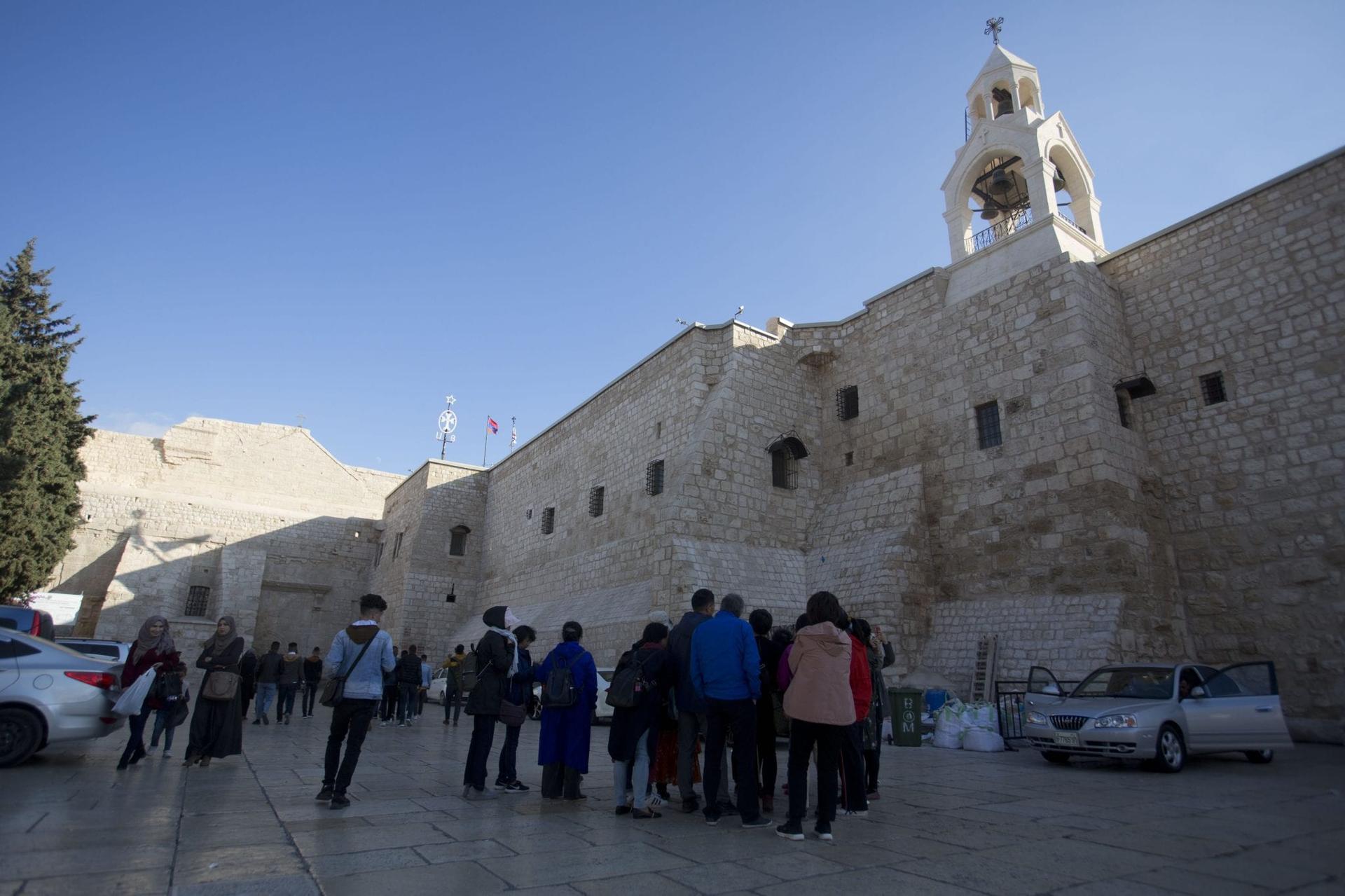Throughout the Holy Land, pilgrims see the simple word hic inscribed in various churches, places, and alley ways. The simple Latin word means “here.” It was written in these various locations as a reminder to the Christian believer that the events recorded in the Gospels all happened hic, they happened here.
They were true, historical events. They occurred in this very place, or in this very passageway.
It can be a startling, rejuvenating awareness for a believer. Obviously, the believer has always believed in the events recorded in the Sacred Scriptures, but to suddenly be in the very locale, in the very place, where the recorded events occurred can move even the strongest believer to an unimagined even stronger faith. As some have said, “My God, it happened here. It really happened.”
By such an expression, the believer doesn’t mean they didn’t believe it before. They’re just manifesting a profound realization – a making real – of what they already knew. The sacred events happened here. Right here. Hic.
Many years ago, as a graduate student, I spent a summer with a Christian Palestinian family in Bethlehem. It was my first visit to the Holy Land. And like all believers, it rocked my world.
It was not only the opportunity to experience those “hic” moments, but to actually live in the very city of the Lord’s birth. My host family was patient and gracious. They guided me to the popular and not-so-popular holy places throughout Bethlehem.
In particular, they walked me through the intricacies of the Church of the Holy Nativity since it’s cared for by three predominant Christian communities, and the various rules relating to its use must be followed for a greater peace.
After the initial tours, I spent most of my days at my desk researching some historical items or walking around the city trying to experience the day-to-day reality of the Christian Palestinians.
On good mornings, when I wasn’t sleeping in, I’d walk the two blocks from my host family’s apartment to the Church of the Holy Nativity. I’d go down to the Grotto of the church and pray in front of the spot where the Lord was born. I’d trace my fingers along the fourteen-pointed star that marked the spot.
The fourteen points of the star represent the generation upon generation of waiting for the coming of the Messiah, the Anointed Savior, promised by God. In particular, the points of the star symbolize the fourteen generations from Abraham to David, the fourteen generations from David to the Babylonian Exile, and the fourteen generations from the Exile to the coming of the Christ.
In total, the fourteen-point star is a message of promises made and promises fulfilled. It is a symbol of God’s faithfulness to his people. God sent us the Messiah. We did not know, nor could we ever expect, that the long-awaited Messiah would in fact be God himself and that his means of salvation would be suffering.
Although I was in Bethlehem for some time, every such morning at the Grotto was like the first time. In my own mind and heart, I could hear my soul say, “It really happened. And it happened right here. God became a man for us. He came to save us, to save me.”
This is the Gospel message. It’s the Christmas message. This is the saving message that the season of Advent is meant to help us experience again, and so re-live its power and transcendence, its awe and majesty, and so be moved to divine aspirations and desires. To know of God’s love, of his search for us, and of his incarnation to seek us out and bring us home should move us to live as God’s children and to seek more deeply the salvation Jesus Christ won for us.
While many believers will never be able to make it to the Holy Land and experience the hic moments in its churches and streets, all believers are invited in the Advent season to spiritually visit and experience the historical events and saving truths of the Lord’s life. While not all believers will make it to the Grotto of the Church of the Holy Nativity, every believer can encounter and adore Jesus Christ in the creche of their homes.
We can’t let Advent get lost and arrive at the spiritual Grotto of the Lord with distracted or wayward minds and hearts. As the saving event draws ever closer, these last few days of Advent are a call to the Grotto, to the creche, and a summons to experience again and prepare well for the coming of the long-awaited Messiah.
Crux is dedicated to smart, wired and independent reporting on the Vatican and worldwide Catholic Church. That kind of reporting doesn’t come cheap, and we need your support. You can help Crux by giving a small amount monthly, or with a onetime gift. Please remember, Crux is a for-profit organization, so contributions are not tax-deductible.















